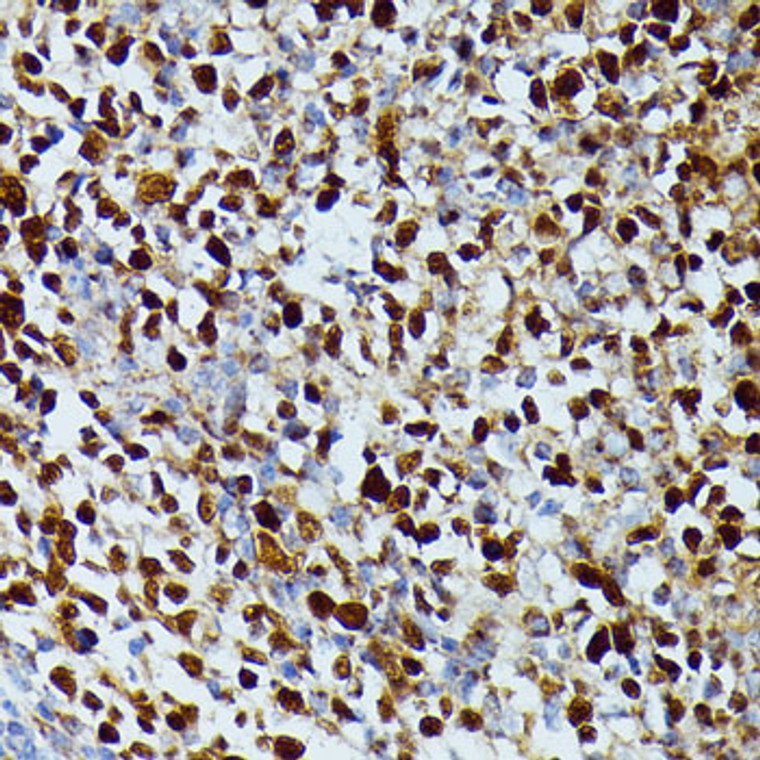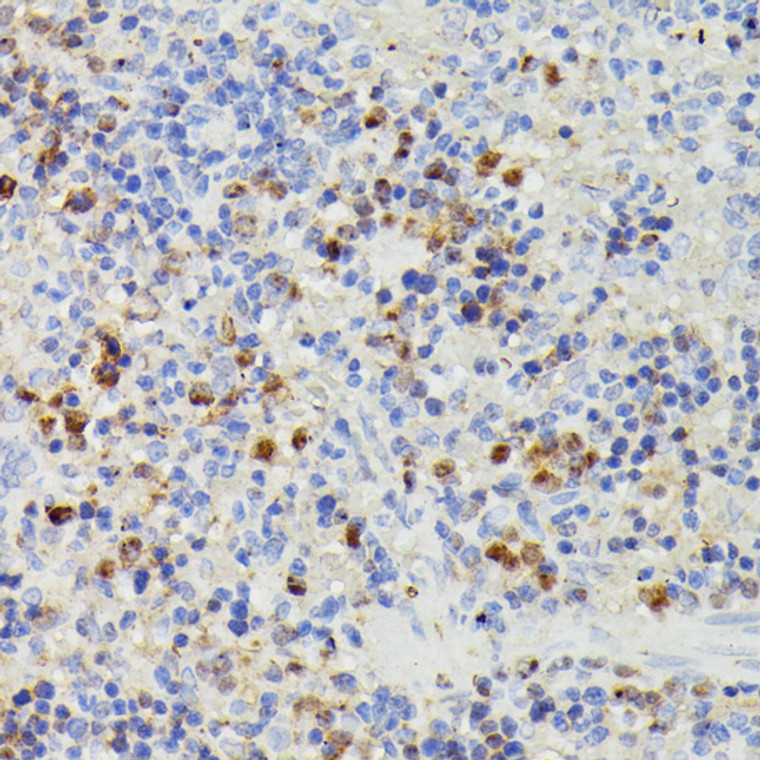| Host: |
Rabbit |
| Applications: |
WB/IHC/IF |
| Reactivity: |
Human/Mouse/Rat |
| Note: |
STRICTLY FOR FURTHER SCIENTIFIC RESEARCH USE ONLY (RUO). MUST NOT TO BE USED IN DIAGNOSTIC OR THERAPEUTIC APPLICATIONS. |
| Short Description: |
Rabbit polyclonal antibody anti-DUT (89-252) is suitable for use in Western Blot, Immunohistochemistry and Immunofluorescence research applications. |
| Clonality: |
Polyclonal |
| Conjugation: |
Unconjugated |
| Isotype: |
IgG |
| Formulation: |
PBS with 0.01% Thimerosal, 50% Glycerol, pH7.3. |
| Purification: |
Affinity purification |
| Dilution Range: |
WB 1:500-1:1000IHC-P 1:50-1:200IF/ICC 1:100-1:200 |
| Storage Instruction: |
Store at-20°C for up to 1 year from the date of receipt, and avoid repeat freeze-thaw cycles. |
| Gene Symbol: |
DUT |
| Gene ID: |
1854 |
| Uniprot ID: |
DUT_HUMAN |
| Immunogen Region: |
89-252 |
| Immunogen: |
Recombinant fusion protein containing a sequence corresponding to amino acids 89-252 of human DUT (NP_001020419.1). |
| Immunogen Sequence: |
PAPGPETPAISPSKRARPAE VGGMQLRFARLSEHATAPTR GSARAAGYDLYSAYDYTIPP MEKAVVKTDIQIALPSGCYG RVAPRSGLAAKHFIDVGAGV IDEDYRGNVGVVLFNFGKEK FEVKKGDRIAQLICERIFYP EIEEVQALDDTERGSGGFGS TGKN |
| Tissue Specificity | Found in a variety of tissues. Isoform 3 expression is constitutive, while isoform 2 expression correlates with the onset of DNA replication (at protein level). Isoform 2 degradation coincides with the cessation of nuclear DNA replication (at protein level). |
| Post Translational Modifications | Nuclear isoform 2 is phosphorylated in vivo on Ser-11, a reaction that can be catalyzed in vitro by CDC2. Phosphorylation in mature T-cells occurs in a cell cycle-dependent manner. Isoform 3 is not phosphorylated. |
| Function | Catalyzes the cleavage of 2'-deoxyuridine 5'-triphosphate (dUTP) into 2'-deoxyuridine 5'-monophosphate (dUMP) and inorganic pyrophosphate and through its action efficiently prevents uracil misincorporation into DNA and at the same time provides dUMP, the substrate for de novo thymidylate biosynthesis. Inhibits peroxisome proliferator-activated receptor (PPAR) activity by binding of its N-terminal to PPAR, preventing the latter's dimerization with retinoid X receptor. Essential for embryonic development. |
| Protein Name | Deoxyuridine 5'-Triphosphate Nucleotidohydrolase - MitochondrialDutpaseDutp Pyrophosphatase |
| Database Links | Reactome: R-HSA-499943 P33316-2 |
| Cellular Localisation | Isoform 2: NucleusIsoform 3: Mitochondrion |
| Alternative Antibody Names | Anti-Deoxyuridine 5'-Triphosphate Nucleotidohydrolase - Mitochondrial antibodyAnti-Dutpase antibodyAnti-Dutp Pyrophosphatase antibodyAnti-DUT antibody |
Information sourced from Uniprot.org
12 months for antibodies. 6 months for ELISA Kits. Please see website T&Cs for further guidance











